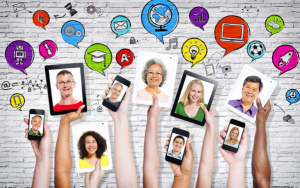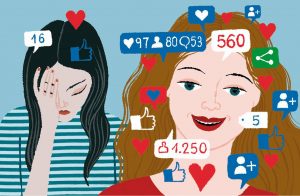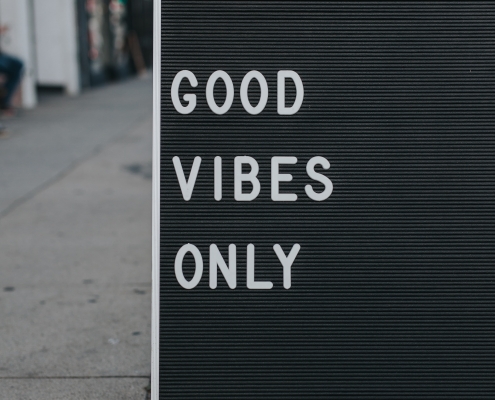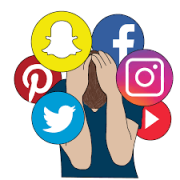SOCIAL MEDIA AND MENTAL HEALTH IN 2021
Do you have a love/hate relationship with social media? Finding the right balance is key to ensuring today’s digital societies have a positive influence on your life.
We’re all doing it
Well, maybe not everyone. But it seems more members of the global community are choosing to log into a growing array of social media options, with an increase in the average time online.
The Digital 2020 October Global Statshot Report showed social media adoption had grown more than 12 percent in the previous year, with roughly 15% of a social media users’ waking life spent on social platforms.
But it’s work
There are a multitude of positives that make maintaining a digital presence on social media platforms arguably integral to your business. But social media is more than just a marketing tool.
An online community of billions constantly expanding and evolving, social media opens up lines of communication—which can have positive and negative repercussions, if not managed carefully.

The 2019 BBC Future article, “Is social media bad for you? The evidence and the unknowns” considered the science. Despite verified pros and cons, it was difficult to draw many strong conclusions. What was clear, is that each of us are affected differently.
Quality of content
A New York University Department of Psychology study looking at how emotion shapes the diffusion of moralized content in social networks, found the presence of moral-emotional words in messages increased their diffusion by a factor of 20% for each additional word.
Meaning more shares, and therefore exposure, for emotive content. Over time it can be argued this prevalence for emotionally-effecting material likely impacts mental health, especially for those suffering from anxiety or depression.
Validation and stress
The impact of social media is a complicated issue. While it can lift loneliness, grow business, increase confidence, and be a source of inspiration and clarity—the opposite can also happen.
The risk of self-worth becoming entwined with public validation is ever-present. Relying on the approval of strangers in digital societies could leave users vulnerable and anxious, especially when attention falls short.

Have you become dependent on digital affirmation? If the answer is yes, it might be a good idea to moderate your social media habits. Mindful social media use is essential, and should be practiced by everyone.
How long have you been scrolling?
Is social media submerging your thoughts in an information overload? The Oxford Dictionary defines technostress as stress or psychosomatic illness caused by working with computer technology on a daily basis.
Consider turning off or limiting notifications. Often a notification splits your focus and impacts productivity. Behavioural intervention, such as strict social media windows in your schedule, might help.
App limits are a popular way to make yourself aware of time slipping away while browsing social media. Set an app limit, and your phone, iPad or tablet informs you when the time is up.
The New York Times ran a Smarter Living piece in 2019 titled, “How to Make Your Phone Limit Your Screen Time for You” that offers a variety of helpful hints and recommendations to curb that SM quota.
Surviving social media
For many, real world behaviour and online behaviour have different parameters. Online, people indulging in behaviour unacceptable in real life. Digital abuse has become increasingly problematic, making self-care paramount.
The ReachOut Australia website offers 5 tips for dealing with trolls:
- Starve Them
- Record It
- Stand Up for Yourself
- Log Off
- Tell Someone You Trust
A social media rule to keep in mind: mental health comes first. Block abusive users when necessary. You’re not obligated to engage. If minimising platform visits makes you more comfortable, use tools to schedule posts in advance.

Altering your SM feed
Curate your social media experience, by exploring possibilities. Choose keywords, hashtags, and topics to follow, or block upsetting topics and keywords. While it’s great to support a friend’s business, make sure to also follow accounts that interest you.
Certain platforms offer the option of limiting a post’s audience, regulating who can reply/comment/share, or restricting a person’s posts from your feed. Don’t hesitate to take steps that make social media more positive and engaging.
Prioritise yourself
Social media is a personal experience and how it effects an individual depends on a lot of factors. Always remember social media is a valuable tool a person or business wields for positive results.
If the experience is stressful, time-consuming, or invalidates self-worth, step back. With a focus on digital wellbeing, reshape how you use social media platforms. Stay aware, and adjust practices to prioritise mental health.

